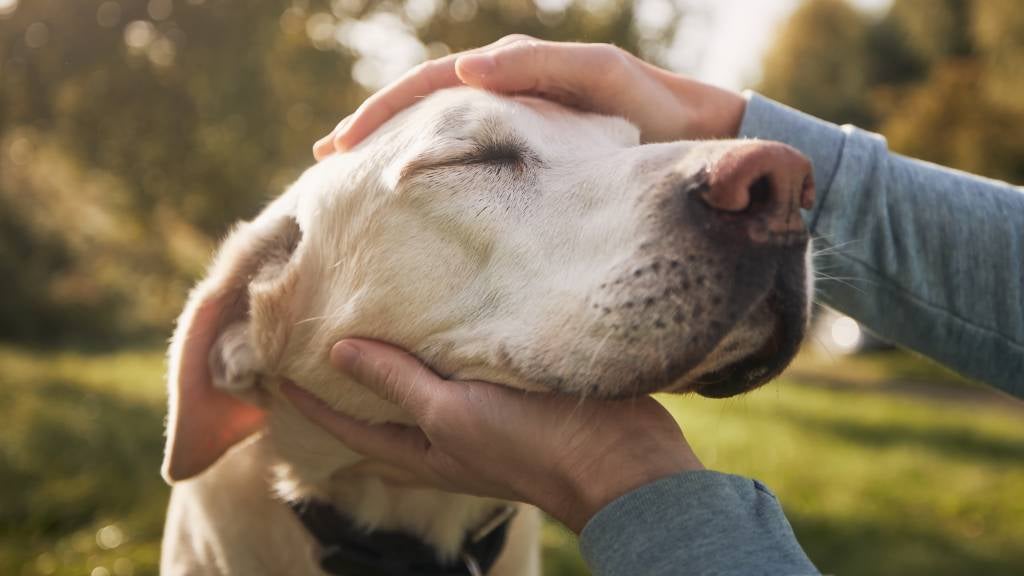Pet insurance for senior dog care

Many of us have shared incredible years with our dogs—years filled with long games of fetch, and unconditional love. But as our dogs age, their needs start to change and things can get a little "ruff" around the edges.
Caring for your senior dog involves more than just extra belly rubs and leisurely walks. It's about providing the best healthcare possible to ensure their golden years are comfortable and happy. As our four-legged friends age, their healthcare needs increase.
In recent years, pet insurance has emerged as an option for managing the costs of caring for older dogs. Pet insurance is experiencing a surge in popularity, in fact, leading pet insurance administrator PetSure now provides pet insurance to nearly half a million people across Australia and New Zealand.
However, many people still question whether pet insurance is worth the investment, especially for senior dogs. Let's evaluate the value of pet insurance for senior dogs, drawing on insights from our resident expert, Dr Rosalind Holland (BVSc, MVM, MANZCVS).
The importance of pet insurance
Having pet insurance is super important to make sure your senior dog gets the best healthcare. Just like us humans, dogs can have more health issues as they get older. So it's good to have that safety net in place!
"Pet insurance can be very valuable as your dog ages to help with the cost of veterinary care," advises Dr Holland. "It is important to have comprehensive insurance that covers medical issues and not just trauma."
Unexpected illnesses or accidents can lead to hefty medical bills that can be a financial strain. Pet insurance provides a degree of coverage for such veterinary costs, ensuring your pet gets the necessary treatment without a second thought about the expense.
But it's not just about managing unexpected costs—it's about peace of mind and knowing that you're prepared to provide your ageing dog with the best care possible when they need it most, securing their health and happiness in their golden years.
What are the pet insurance options for older dogs?
Most pet insurance companies offer multiple plans (with varying cover) for dogs of all ages, including senior dogs. However, the premiums may vary depending on your dog's age and existing health conditions.
Some plans are comprehensive and include coverage for accidents, illnesses, and routine care, while others only provide coverage for specific conditions.
However, it's crucial to understand that some insurance policies may not cover pre-existing conditions which many senior dogs may already have.
Dr Holland advises, "Make sure you are aware of the details of the insurance policy you are buying and any medical issues your pet has. Getting insurance when you first adopt your pet, especially if they are young, can help avoid exclusions for pre-existing conditions."
Before selecting a pet insurance plan for your senior dog, make sure to read the fine print and understand what is covered under each policy to ensure that you select the best cover for your pet’s needs.
Common health issues and how pet insurance can help
"Most dogs will experience some degree of osteoarthritis (OA) and dental issues as they age," states Dr. Holland. "OA causes chronic pain and can usually be well managed with ongoing pain relief. Dental disease requires regular preventative care through teeth cleaning and treatment of any issues under anesthesia."
Many other health issues are more common in older dogs, such as:
- cancer
- heart disease
- kidney disease
- diabetes
- vision and hearing loss
Factors to consider for senior dogs
- Preventative care cover: As your dog ages, the risk of illnesses naturally increases. Prevention is better than cure, and this applies to pet care as well. Taking steps to prevent health issues in your dog can save you money, reduce owner stress, and ensure your pet's well-being.
- Pre-existing conditions: Most policies will not include pre-existing conditions. This means that any known or diagnosed issues before getting insurance may not be covered by the policy.
- Breed and size: Different breeds have varying genetic predispositions that affect their health and likelihood of developing specific conditions. As such, insurance premiums may be affected by your dog's unique needs.
- Age restrictions: Some policies will not insure pets over a certain age if cover is already not in place. Premiums tend to increase as pets age as well. This means it's important to get insurance for your dog as early as possible before they reach the age where coverage may not be available.
- Chronic conditions: Chronic conditions such as diabetes, heart disease, and cancer can be more common in senior dogs. Pet insurance can help cover the ongoing costs of managing these conditions, including medication, regular check-ups, and diagnostic tests.
- Multiple health issues: Dr Holland advises that as our dogs age, they are more likely to develop multiple health issues at the same time and to have more complex issues which may warrant referral for specialist care.
Evaluating the cost of pet insurance for senior dogs
When pondering the price of pet insurance for your wise senior dog, it's crucial to balance the perks it offers with the monthly or yearly premiums. While it may appear as an extra expense, pet insurance can actually be your money-saving superhero in disguise, swooping in to rescue your wallet from unexpected veterinary costs.
While it's true that some pet owners may end up paying more in pet insurance premiums than they receive in benefits, it's important to remember that the real value of pet insurance lies in its role as a safety net. It provides financial security for those unexpected vet expenses, ensuring that your senior dog gets the care they need when they need it.
At SPCA, we believe that every dog deserves the best care possible, regardless of their age. Consider taking out cover with SPCA Pet Insurance so that your furry companion is covered.
12 Apr 2024